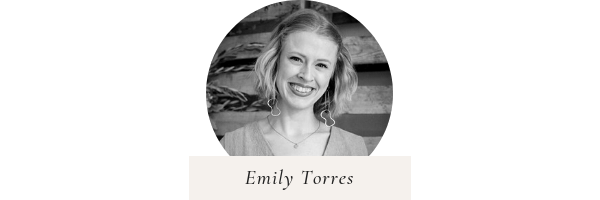
Is It Okay To Rent Forever? Asking For Me
“We’re actually thinking of buying”
Whenever I see this text message pop up from a friend, my heart does a little happy dance as I envision my loved one as a homeowner. I think back to when we were all pre-teens with braces, buying cotton candy with pocket change at the county fair, talking about our crushes, and soaking up the long summers. And now, they’ll be a homeowner.
My heart does something else, though, after the excitement settles: It drops.
I am not a homeowner, and I’ve been wondering if I ever will be. Sure, it’s easy to look at home prices in Indiana where I’m from and think I could do this in a decade. I’d only have to ignore the opportunity cost of relocating to a place with fewer employment options for my husband and me. But as average home prices are around $750k here in Los Angeles, I’m priced out of owning a home here for the foreseeable future. Of course, I’m lucky enough to afford an apartment in a city with one of the highest populations of unhoused people.
“It’s almost as if low-income consumers are penalized for just not being wealthy.”
Even while I read comprehensive guides to buying real estate in LA, with rosy mentions of first-time homebuyers assistance and assurance that it might be possible to purchase a home with a 4 percent down payment, it still doesn’t make sense. If I wasn’t first beat out by an all-cash buyer, having $22k on hand for that down payment still isn’t feasible for most of my under-35 peers and me. And who could’ve imagined (not me)—there’s an additional monthly cost for private mortgage insurance if you don’t put 20 percent down. It’s almost as if low-income consumers are penalized for just not being wealthy. (👀)
So, renting it is. But there’s a catch. The message I’ve received my whole life is that renting is for students, for people in flux, or for people who cannot properly save due to poor money management. But the latter sentiment is inherently classist and puts the blame on renters rather than on a system full of stagnant wages and generational wealth. It’s a narrow viewpoint that fails to account for intersecting factors of race, gender, and orientation. It’s a narrow viewpoint that’s worth unlearning.
“Blame [is put] on renters rather than on a system full of stagnant wages and generational wealth.”
Not being able to afford a house has been deeply analyzed and even sometimes portrayed as a moral failing for millennials. The truth is, times have changed, and the reasons people remain renters range from poverty to personal choice—and there’s no moral failing anywhere along that spectrum. If you’re grappling with the numbers and think, “Hey, I might have to rent forever,” you’re not alone. Apartment Lists’ 2019 report shows that 12.3 percent of millennials surveyed believe, for one reason or another, that they’ll be renters forever.
“The reasons people remain renters range from poverty to personal choice—and there’s no moral failing anywhere along that spectrum.”
But there are benefits, which may help you feel a little more excited about the prospect of permanently using contact paper to spice up your cabinetry. (Woo…?) Let’s take a look!
Flexibility
From ages 18 to 22, I moved in and out of nine different places. After graduating, I believed that the normal pace for renters was to move every year once your lease was up. Long-term renting didn’t enter my lexicon until I moved to Los Angeles at 24, settling into a small apartment in a central location. Six years later, I’m still in the same place with no intention to move.
But the beautiful thing is—I could move at any moment, if I had a sizable chunk of cash for a security deposit. There’s greater flexibility to enter and exit a residence when you rent since you don’t have to wait around for closing, inspections, or other additional delays that come with purchasing a home. If you have the privileges of a security deposit, decent credit, and aren’t too picky, you can snag an apartment within a matter of days.
“Flexibility is a perk, but sometimes it’s more of a consolation prize if it wasn’t your first choice.”
But sometimes flexibility can be a euphemism for housing insecurity. The same rules that allow you to come and go quickly can also mean renters are more susceptible to being rapidly evicted, so it’s important to take this benefit with an awareness of your advantages and a dash of scrutiny. I don’t know about you, but hearing property owners tell renters they have more flexibility can feel a bit like someone in a mansion telling a person in a studio, “At least you don’t have to hire someone to clean your house.” It’s a perk, but sometimes it’s more of a consolation prize if it wasn’t your first choice.
Cost
I couldn’t tell you the first thing about hiring an electrician or getting an estimate on a roof. Could I learn? Yes. Is that something I currently have the headspace or budget to handle? Thank you, no. The same rules that restrict what you can and can’t hang on your walls often offer the protection of a maintenance team to handle repairs.
“The same rules that restrict what you can and can’t hang on your walls often offer the protection of a maintenance team.”
Besides lower upkeep costs, renting also means you don’t have to have tens (or hundreds) of thousands of dollars on hand to make a security deposit. If you do have the extra cash, it might make sense to invest outside of real estate. In light of the upheavals of 2020, it’s best to chat through your options with a financial advisor.
The conversation about renting is changing; it’s not “wasting money” as I believed when I was younger and scouring early retirement message boards. (The early retirement was unsuccessful, btw.)
I do stay wary of who is leading the conversation, though—who’s telling me that renting is a good thing? Sometimes I find that it’s people who’ve been able to invest in property, the same people who might materially benefit from me remaining a renter for a long time. When I look for advice, I double-check to make sure it’s coming from someone who’s experienced a similar financial trajectory. Maybe that’s not a perfect strategy, but I need plenty of non-judgment when it comes to personal finance.
“Who’s telling me that renting is a good thing? Sometimes I find that it’s people…who might materially benefit from me remaining a renter for a long time.”
Community
Not all the pros and cons are material. The intangibles that come with homeownership, like housing security, privacy, and a sense of permanence, can feel difficult to replace. But I’ll offer a counterpoint that, maybe, can soothe those of us who scroll Zillow with hungry eyes.
If you’re feeling heartbreak over a home you’ve never owned, that’s okay; I feel it too. But I do invite you to push your gratitude deeper, as I challenge myself to do the same. There can be magnificent community benefits of living in a rented space in close proximity to others.
Whether we pass the same people on our daily walks, help our older neighbors check the mail, or share the laundry machine in the spooky basement—renting can be a beautiful experience. (As long as you’re not beleaguered by upstairs neighbors who constantly vacuum up after their pet rabbits. I’m so sorry, Catherine.)
“Maybe we have an opportunity to extend more support to one another than we might have if we lived in owned homes separated by high fences.”
In a population-dense area full of renters, maybe we have an opportunity to extend more care and support to one another than we might have if we lived in owned homes separated by high fences. Or maybe the impermanence of renting can remind us to extend our empathy and resources to our unhoused neighbors. Maybe no matter where we are, even if there are fences, we can learn to build gates.
Even if it doesn’t offer a return on investment, maybe renting can establish perspective and a permanent connection to the people we share our temporary lives with—whether we rent forever or not.
Renters and buyers, what are your thoughts on home ownership? Share in the comments below!
RELATED READING
Emily Torres is the Managing Editor at The Good Trade. She’s a Los Angeles transplant who was born and raised in Indiana, where she studied Creative Writing and Business at Indiana University. You can usually find her reading or writing, caring for her rabbits, or practicing at the yoga studio. Say hi on Instagram!

